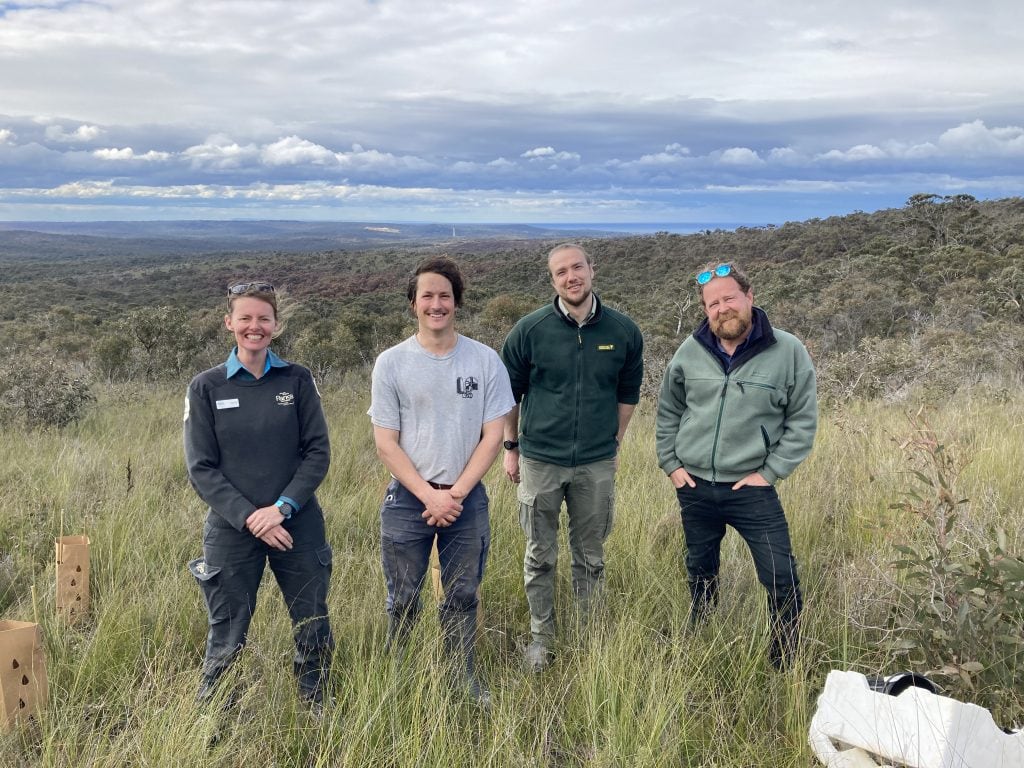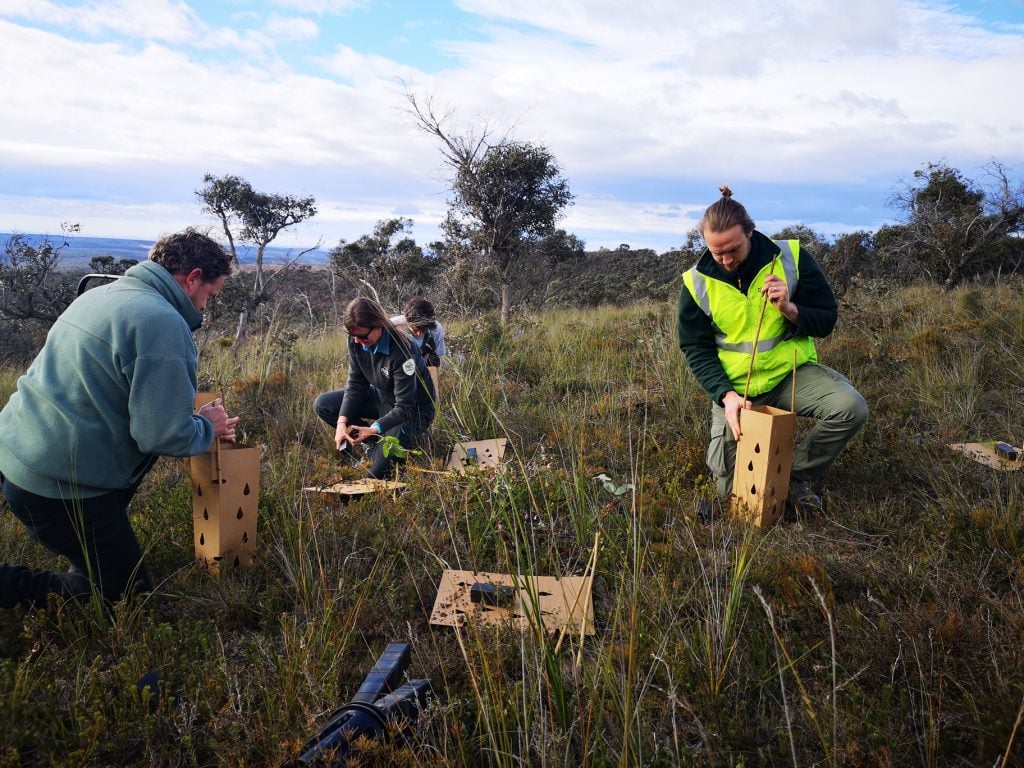A Victoria first experimental trial is attempting to re-establish native bushlands that have been infected with Phytophthora cinnamomi commonly known as dieback. The project will involve planting of native species that have been pre-treated with phosphite.
The plants will be treated with phosphite, a salt solution, prior to planting. This phosphite treatment is like an immunisation for plants, it helps them resist infection from this devasting disease.
A healthy natural environment is important for our plants, animals, and communities. Phytophthora dieback poses a significant threat to the Otways heathlands environment.
This plant pathogen can spread easily, causing yellowing of leaves and eventual death. If untreated dieback can result in the loss of susceptible plants like our iconic grasstrees in impacted areas.


Grasstrees and other susceptible plant species found in our heathlands provide habitat critical for the survival of a number of our native mammals, including threatened species such as Swamp antechinus, Long nosed Potoroo and Southern Brown Bandicoot in our region.
The aim of this trial is to reintroduce plant species that are susceptible to Phytophthora dieback to regain the vegetation structure and complexity of this habitat in areas affected by the disease.
There will be a focus on grasstrees, Xanthorrhoea australis a species identified by the National Threat Abatement Plan (EPBC Act) as a critical element of ecological function and an important species of very high cultural significance to Traditional Owners.
The trial is being run by Deakin University PhD student Campbell Learmonth who is collaborating with Barbara Wilson Pty Ltd, Corangamite CMA, Parks Victoria and the Department of Environment, Land, Water and Planning.
The seeds were obtained from areas in the Anglesea Heath and grown by Otway Greening and Aireys Indigenous Nursery.
Corangamite CMA’s, Manager of Environmental Programs Jessica Miller says, “The battle against Phytophthora is being fought on many fronts through the Wild Otways Initiative. The project is undertaking mapping of the disease, hygiene training and treatment using phosphite”.
“This research is groundbreaking because a trial like this has never been delivered before in Victoria”.
“Our research shows that a number of our threatened small mammals are effectively absent from these Phytophthora infected areas. This planting trial will recreate vegetation complexity and is another management tool that will support small mammal recovery”.
“Most importantly, the community also has a role to play in stopping the spread of this devastating plant disease into our native bushland.”
You can learn more about how to do your part in protecting the Otways from plant dieback by downloading the Corangamite CMA’s Phytophthora Management Hygiene Guidelines here: https://bit.ly/3AqRQt8
This project is supported by the Corangamite CMA through funding from the Australian Government.
64 Dennis Street, Colac VIC 3250
PO Box 159, Colac, VIC 3250
Hours: 8:30am – 5pm, Monday to Friday
T: 1800 002 262
E: info@ccma.vic.gov.au
BARWON WATER OFFICES
Hours: 8:30am – 5pm, Monday to Friday
All mail must be sent via our Colac office
PO Box 159, Colac, VIC 3250
T: 1800 002 262
E: info@ccma.vic.gov.au
 Close
Close